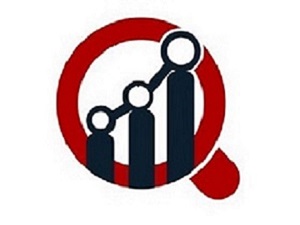
Introduction:
In 2022, the Germany lithium-ion battery market was estimated to be worth USD 1.5 billion. The market for lithium-ion batteries is expected to expand at a compound annual growth rate (CAGR) of 17.00% between 2023 and 2032, from USD 1.8 billion in 2023 to USD 6.2 billion by 2032.
As the world transitions towards sustainable energy solutions, the demand for lithium-ion batteries has surged, revolutionizing various industries, from electric vehicles to renewable energy storage. In this paradigm shift, Germany stands at the forefront, not just as Europe’s largest economy but also as a key player in the global lithium-ion battery market. This article explores the dynamics, trends, and future prospects of Germany’s lithium-ion battery market.
Request Free Sample Report:
https://www.marketresearchfuture.com/sample_request/13960
Key Companies in the Lithium-ion Battery market include
Rising Demand and Market Dynamics:
Germany’s push towards renewable energy and its ambitious goals to phase out nuclear power and reduce greenhouse gas emissions have fueled the demand for energy storage solutions. Lithium-ion batteries have emerged as a pivotal technology in this transition, offering efficient and scalable energy storage options.
The automotive sector has been a primary driver of demand for lithium-ion batteries in Germany. With the rise of electric vehicles (EVs), major German automakers have intensified their efforts to develop electric models, leading to substantial investments in battery production facilities. Additionally, the increasing adoption of plug-in hybrid vehicles further augments the demand for lithium-ion batteries.
Beyond automotive applications, the integration of renewable energy sources like wind and solar into the power grid necessitates effective energy storage solutions to manage intermittency and ensure grid stability. Lithium-ion batteries offer flexibility and rapid response times, making them well-suited for this purpose. Consequently, there is a growing market for utility-scale battery storage systems in Germany, both for grid stabilization and as part of decentralized energy systems.
Market Players and Investments:
Germany boasts a robust ecosystem of companies engaged in lithium-ion battery manufacturing, research, and development. Established players like BMW, Volkswagen, and Daimler AG have made significant investments in battery technology to secure their positions in the EV market.
Moreover, Germany is home to several battery cell manufacturers, including Northvolt, Contemporary Amperex Technology Co. Limited (CATL), and Tesla. These companies are expanding their production capacities to meet the escalating demand for lithium-ion batteries, not only within Germany but also across Europe.
In addition to established corporations, Germany’s vibrant startup scene is driving innovation in battery technology. Startups are focusing on developing advanced materials, novel cell chemistries, and manufacturing processes to enhance battery performance, durability, and safety.
Government Support and Policy Initiatives:
Government support and favorable policies have played a crucial role in fostering the growth of the lithium-ion battery market in Germany. The National Innovation Programme for Battery Cell Production, launched in 2019, aims to establish a competitive and sustainable battery manufacturing industry in Germany and Europe. The program includes funding for research and development, support for battery cell production facilities, and measures to strengthen the entire value chain.
Furthermore, Germany’s participation in European initiatives such as the European Battery Alliance and the European Battery Regulation demonstrates its commitment to building a robust battery industry within the EU, ensuring security of supply and reducing dependence on imports.
Read Report Overview:
https://www.marketresearchfuture.com/reports/germany-lithium-ion-battery-market-13960
Future Outlook:
The outlook for Germany’s lithium-ion battery market remains highly promising. The continued electrification of transportation, coupled with the expansion of renewable energy capacity, will sustain the demand for energy storage solutions. Moreover, advancements in battery technology, including higher energy density, faster charging capabilities, and lower costs, will further drive market growth.
However, challenges such as raw material supply chain constraints, environmental concerns, and international competition necessitate concerted efforts from industry stakeholders, policymakers, and researchers to address these issues and maintain Germany’s leadership in the global lithium-ion battery market.
Germany’s lithium-ion battery market is poised for robust growth, driven by the country’s commitment to sustainable energy transition, technological innovation, and supportive policy frameworks. With a strong industrial base, a culture of innovation, and strategic investments, Germany is well-positioned to capitalize on the immense opportunities presented by the expanding battery market, contributing to a greener and more sustainable future.
More Related Reports:
Sustainable Aviation Fuel Market
About Market Research Future:
Market Research Future (MRFR) is a global market research company that takes pride in its services, offering a complete and accurate analysis with regard to diverse markets and consumers worldwide. Market Research Future has the distinguished objective of providing optimal quality research and granular research to clients. Our market research studies by products, services, technologies, applications, end users, and market players for global, regional, and country level market segments, enable our clients to see more, know more, and do more, which help answer your most important questions.